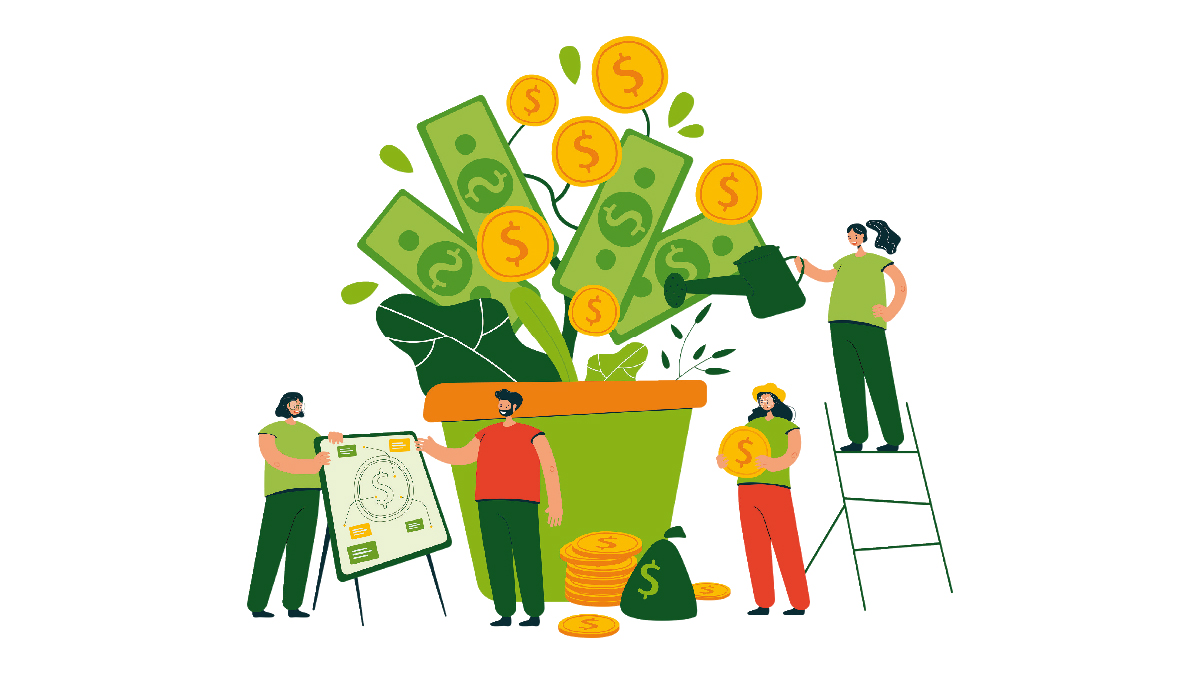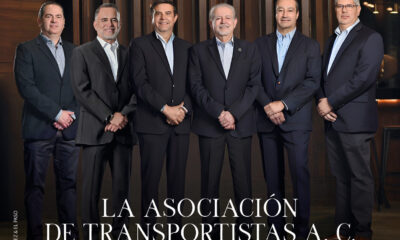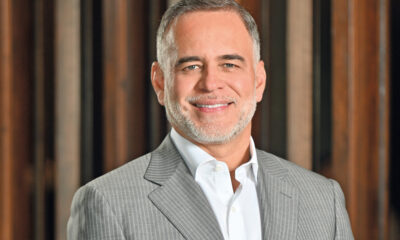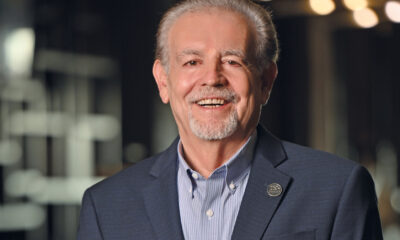Finanzas
Cómo aportar económicamente al hogar
Publicado
3 años antesel
Por
Staff
Debemos aprender a manejar los recursos materiales y económicos de forma que le den gloria y honor al Señor
Por: Cultura Financiera
“¿Has visto a alguien diligente en su trabajo? Se codeará con reyes, y nunca será un Don Nadie”
Proverbios 22:29
Antes que nada, como cristianos tenemos que aprender a ceder la propiedad de todas nuestras posesiones a Dios; incluyendo el dinero, tiempo, familia, posesiones materiales, educación, carrera e incluso el potencial futuro para obtener mayores entradas de dinero.
No sólo debemos reconocer que él es el Señor con nuestras oraciones y cánticos, sino también debemos aprender a manejar los recursos materiales y económicos de forma que le den gloria y honor. Esta actitud es esencial si deseamos experimentar una vida de bendición en el área de las finanzas.
El dinero que ganamos es un depósito que Dios nos ha confiado, y debemos ganarlo y administrarlo conforme a los principios bíblicos.
Factor clave para aportar a la economía del hogar
La clave para generar recursos y aportar a la economía es estar siempre preocupados por la cantidad y la calidad de nuestra productividad y efectividad. Nos volvemos valiosos para los demás cuando somos productivos. El proverbio inicial nos dice: “Si trabajamos con diligencia, nos destacaremos por encima de los demás”, y eso nos permitirá generar más y mayores recursos.
¿Por qué alguien que es diligente en su trabajo se destaca por encima de los demás?
La mente del buen trabajador se concentra en terminar las tareas. Cuando trabaja, nota que otras cosas se necesitan y también las hace. Como está orientado hacia ser productivo, se vuelve creativo. Busca métodos y maneras de hacerlo mejor y más rápido. Esto le da un lugar para ser considerado para mayores responsabilidades, y no mucho tiempo después estará agregando valor en todo lo que hace.
Actitudes que agregan valor a lo que hacemos
– Trabajar con excelencia: Aprovecha las oportunidades que se te presenten para hacer bien las cosas y busca siempre obtener un buen resultado.
– Trabajar honestamente: Al hacer las cosas para los demás, hazlas como si fueran para ti. Siempre hay que cuidar cómo se obtiene el dinero.
– Trabajar con orden: El trabajo duro debe equilibrarse con otras cualidades. Si nuestro trabajo nos requiere demasiado tiempo y energía, significa que estamos trabajando sin organización, ni planeación.
Cómo podemos a generar recursos
– Mediante el trabajo duro y excelencia
– Mediante el uso creativo e ingenioso de nuestros recursos
– Mediante las inversiones sabias y duraderas
Hay una ley en la vida: Todo lo que no funciona, o se arregla, o se desehecha.
Esta ley se aplica a las personas también. Si no trabajamos duro, ó no queremos trabajar, seremos descartados y rechazados. Debemos crear valor para ser apreciados.
Tenemos una gran oportunidad en el mundo de hoy. Sé una persona diligente, ingeniosa y honesta; afuera se desempeñan otros; haz lo que otros no harán y no solamente te convertirás en alguien sobresaliente, sino en una rara especie que tiene mucha demanda. Si quieres un buen futuro, sé un buen trabajador
“Los pensamientos del diligente ciertamente tienden a la abundancia; Mas todo el que se apresura alocadamente, de cierto va a la pobreza”
Proverbios 21:5
How to contribute financially to the household
We must learn to manage material and economic resources in a way that brings glory and honor to the Lord
By: Cultura Financiera
“Have you seen anyone diligent in his work? He will rub shoulders with kings and will never be anybody.”
Proverbs 22:29
First and foremost, as Christians, we must learn to yield ownership of all our possessions to God, including money, time, family, material possessions, education, career and even future potential for higher income.
Not only must we acknowledge that he is the Lord with our prayers and songs, but we must also learn to manage material and economic resources in a way that brings him glory and honor. This attitude is essential if we wish to experience a life of blessing in finances.
The money we earn is a deposit that God has entrusted to us, and we must achieve it and manage it according to biblical principles.
A critical factor in contributing to the household economy
The key to generating resources and contributing to the economy is always to be concerned about the quantity and quality of our productivity and effectiveness. We become valuable to others when we are productive. The opening proverb tells us, “If we work diligently, we will stand out above others,” allowing us to generate more significant resources.
Why does someone diligent in his work stand out above others?
The excellent worker’s mind is focused on finishing tasks. When working, he notices that other things are needed and does them. Because he is oriented toward being productive, he becomes creative. He looks for methods and ways to do it better and faster. This gives him a place to be considered for more significant responsibilities, and not long after, he will add value to everything he does.
Attitudes that add value to what we do
– Work with excellence: Take advantage of the opportunities that come your way to do things well and consistently seek a good result.
– Work honestly: When doing things for others, do them as if they were for you. Always be careful how you get your money.
– Work in order: Hard work must be balanced with other qualities. If our work requires less time and energy, we work without organization and planning.
How can we generate resources
– Through hard work and excellence
– Be creative and resourceful use of our resources
– Through wise and lasting investments
There is a law: Everything that doesn’t work gets fixed or undone.
This law applies to people as well. If we don’t work hard or don’t want to work, we will be discarded and rejected. We must create value to be appreciated.
We have a great opportunity in today’s world. Be diligent, resourceful and honest; outperform others; do what others will not do, and you will become outstanding and a rare species in demand. If you want a promising future, be a good worker.
“The thoughts of the diligent do indeed tend to plenty, But everyone who hastens madly, surely goes to poverty.”
Proverbs 21:5

¿Alguna vez has sentido que el dinero se te escurre de las manos como arena? En esta vida, entre los deseos y las tentaciones del consumo, a veces parece imposible mantener nuestras finanzas en orden. Pero queremos compartirte una verdad poderosa que nos puede liberar y bendecir: el arte de ahorrar.
La palabra “ahorro” tiene una historia muy interesante. Viene del árabe “hurr”, que significa “libre”. Originalmente, “ahorrar” significaba liberar a un esclavo o a alguien de una carga. ¡Qué revelador! Cuando ahorramos hoy, no solo estamos guardando dinero, sino que nos estamos liberando de las ataduras financieras que nos impiden alcanzar nuestras metas personales.
Ahorrar no es ser tacaño, ¡para nada! Es desarrollar una actitud sabia y de buena administración. La Biblia nos lo enseña claramente: “El sabio ahorra para el futuro, pero el necio derrocha cuanto obtiene” (Proverbios 21:20)7. ¡Salomón sabía de lo que hablaba!
5 errores comunes que nos impiden ahorrar:
A menudo, sin darnos cuenta, cometemos ciertos errores que sabotean nuestros esfuerzos por ahorrar. ¡Identifiquémoslos para poder superarlos!
- No distinguir entre necesidades y deseos: Tendemos a gastar por impulso en lo que queremos, sin preguntarnos si realmente lo necesitamos. Una necesidad es un requisito legítimo para nuestro bienestar o el de nuestra familia, mientras que un deseo es algo que queremos sin respetar las consecuencias. Enfocarse en las necesidades básicas primero es fundamental.
- No tener un plan de gastos: Muchas veces, el dinero simplemente “desaparece” porque no sabemos en qué lo gastamos. No crear un presupuesto familiar y evaluar cada gasto es un error que nos impide ver dónde se va el dinero y dónde podemos ajustarnos.
- Comprar impulsivamente sin preguntar: ¿Cuántas veces hemos comprado algo porque nos gustó en el momento, sin considerar si lo necesitamos, si podemos pagarlo de contado, por qué lo queremos o cuándo podemos comprarlo? Esta falta de reflexión antes de gastar nos lleva a mucha frustración.
- No llevar registros confiables: Si no guardamos las notas de compra del mes o no registramos cada transacción, es imposible saber adónde se va nuestro dinero. Sin estos registros, no podemos identificar gastos innecesarios ni hacer los recortes necesarios.
- Vivir al día y no planificar para el futuro: Este es un error grave. Si no tenemos una reserva de dinero para gastos no planeados o no ahorramos para el mañana, nos volvemos vulnerables a las dificultades financieras. El sabio ahorra y construye para el futuro, mientras que el necio derrocha cuanto obtiene.
En un mundo donde la publicidad nos grita “¡quiero, quiero, quiero!” y el crédito fácil nos envuelve en planes de pago casi imposibles, el ahorro es un acto de rebeldía y sabiduría. Nos ayuda a evitar ser despilfarradores y a vivir dentro de nuestras posibilidades. Nuestros hijos y nietos nos lo agradecerán por ser un ejemplo de vida.
Recordemos el sabio consejo de M.F. Tupper: “Economía, la fábrica del pobre; el derroche, la trampa del rico”. Ya sea que tengamos mucho o poco, la sabiduría financiera es un principio que nos acerca a la libertad y a una vida más plena.
Saving to Flourish: 5 Common Mistakes
Do you feel like money is slipping away without you even realizing it? In a world filled with desires and consumer impulses, learning to save is not only necessary, but liberating.
Have you ever felt like money is slipping through your fingers like sand? In this life, between the desires and temptations of spending, it sometimes seems impossible to keep our finances in order. But we want to share with you a powerful truth that can free and bless us: the art of saving .
The word “thrift” has a very interesting history. It comes from the Arabic ” hurr, ” meaning “free“. Originally, “to save” meant to free a slave or someone from a burden. How revealing! When we save today, we’re not just putting money aside, we’re freeing ourselves from the financial shackles that prevent us from achieving our personal goals.
Saving isn’t about being stingy—not at all! It’s about developing a wise and good stewardship attitude. The Bible teaches us this clearly: “A wise man lays up money for the future, but a fool squanders everything he gets” (Proverbs 21:20). Solomon knew what he was talking about!
5 common mistakes that prevent us from saving:
We often make certain mistakes without realizing it that sabotage our savings efforts. Let’s identify them so we can overcome them!
- Failing to distinguish between needs and wants: We tend to spend impulsively on what we want, without asking ourselves if we really need it. A need is a legitimate requirement for our well-being or that of our family, while a want is something we want without regard for the consequences. Focusing on basic needs first is critical.
- Not having a spending plan: Often, money simply “disappears” because we don’t know how we spend it. Not creating a family budget and evaluating each expense is a mistake that prevents us from seeing where the money is going and where we can make adjustments.
- Impulse buying without question: How many times have we bought something because we liked it at the time, without considering whether we need it, whether we can pay for it in cash, why we want it, or when we can buy it? This lack of reflection before spending leads to a lot of frustration.
- Not keeping reliable records: If we don’t keep monthly purchase notes or record every transaction, it’s impossible to know where our money is going. Without these records, we can’t identify unnecessary expenses or make the necessary cuts.
- Living for the day and not planning for the future: This is a serious mistake. If we don’t have a reserve of money for unplanned expenses or don’t save for tomorrow, we become vulnerable to financial hardship. The wise save and build for the future, while the foolish squander everything they get.
In a world where advertising screams “I want, I want, I want!” and easy credit lulls us into almost impossible payment plans, saving is an act of rebellion and wisdom. It helps us avoid being wasteful and live within our means. Our children and grandchildren will thank us for being an example of life.
Tupper ‘s wise advice : “Economy is the poor man’s factory; waste is the rich man’s trap.” Whether we have much or little, financial wisdom is a principle that brings us closer to freedom and a more fulfilling life.
Finanzas
Vacaciones a la medida de tu cartera
Publicado
4 meses antesel
01/07/2025Por
Adriana Camino
Una buena planificación te permite disfrutar del presente y evitar preocupaciones futuras
Llegaron las vacaciones y con ellas la oportunidad de disfrutar, ya sea viajando o quedándote en casa, y para que este período no se convierta en una fuente de estrés financiero, te compartimos algunos consejos que te permitirán relajarte sin gastar de más.
1. Planea con anticipación
Si vas a salir de la ciudad, aprovecha las ofertas de temporada y adquiere con tiempo vuelos o paquetes turísticos. Investiga actividades gratuitas o de bajo costo en tu destino; muchas veces son igual de divertidas y enriquecedoras. Incluso si te quedas en casa, buscar opciones accesibles para pasear dentro de tu ciudad también puede ser una gran alternativa.
2. Cuida los pequeños gastos, pero sé flexible
Durante los paseos, especialmente en épocas de calor, es común que se nos antoje algo refrescante, sin embargo, estos pequeños gastos, que en apariencia son insignificantes, pueden acumularse rápidamente y convertirse en grandes cantidades.
Tener claro cuál es tu presupuesto para estos gastos es ideal, a la par que puedes implementar estrategias como llevar en algunas ocasiones tus propios snacks y bebidas, aunque puedes tener cierta flexibilidad según lo amerite la situación, así podrás evitar decisiones impulsivas y disfrutarás en el momento adecuado, sin sentirte limitado.
3. Prioriza experiencias sobre objetos
Si decides comprar algún suvenir, trata de no hacerlo en las zonas más turísticas, donde los precios suelen ser más elevados, evita comprar de más, no necesitas llevarle algo a todos tus conocidos. Invierte mejor en experiencias que realmente disfrutarás y recordarás, en lugar de en objetos que luego terminarán arrumbados en algún rincón.
4. Disfruta también en casa
Quedarte en casa puede ser igual de gratificante. Aprovecha para reconectar contigo y con tu familia: organiza una tarde de juegos, maratón de películas, tiempos de lectura, platicar mientras comparten una taza de té o café, etcétera. Estar en casa relajados y disfrutar de todo aquello que a veces la rutina acelerada no nos permite también es una bendición y estos momentos pueden convertirse en recuerdos inolvidables.
5. Piensa a futuro
No olvides que después de las vacaciones volveremos a la rutina y los gastos normales siguen necesitando ser cubiertos; todos aquellos gastos hechos con las tarjetas de crédito deberán de ser pagados o terminarás pagando mucho más en intereses, además, terminando las vacaciones, llegan los gastos del regreso a clases.
Por eso, una buena planificación no sólo te permite disfrutar del presente, sino también evitar preocupaciones futuras.
La clave está en organizarte y tomar decisiones conscientes para que el descanso no se traduzca en deudas innecesarias. ¡Felices vacaciones!
Vacations Tailored to Your Budget
Good planning allows you to enjoy the present and avoid future worries.
Vacation time is here bringing with it the opportunity to enjoy yourself, whether you’re traveling or staying at home. To make sure this period doesn’t become a source of financial stress, here are some tips to help you relax without overspending:
1. Plan Ahead
If you’re planning to leave town, take advantage of seasonal deals and book your flights or travel packages early. Look into free or low-cost activities at your destination—these can often be just as fun and enriching. Even if you’re staying home, exploring affordable options in your own city can be a great alternative.
2. Watch the Small Expenses—but Stay Flexible
While out and about—especially in hot weather—it’s common to crave something refreshing. But these small, seemingly harmless purchases can add up quickly.
Having a clear budget for these expenses is ideal. You can also bring your own snacks and drinks at times, while still allowing for some flexibility depending on the situation. This way, you’ll avoid impulse decisions and enjoy treats when the time is right—without feeling restricted.
3. Prioritize Experiences Over Objects
If you decide to buy a souvenir, try not to do so in tourist-heavy areas where prices are inflated. Avoid overbuying—there’s no need to get something for everyone you know. Invest in experiences you’ll truly enjoy and remember, rather than in items that might end up forgotten in a drawer.
4. Enjoy Time at Home Too
Staying home can be just as rewarding. Take the opportunity to reconnect with yourself and your family—organize a game night, a movie marathon, reading time, or simple conversations over tea or coffee.
Relaxing at home and enjoying the little things we often miss in our busy routines is a gift—and these moments can become unforgettable memories.
5. Think Ahead
Don’t forget that after the holidays, normal life—and expenses—resume. Credit card charges will need to be paid, and back-to-school costs are just around the corner.
That’s why good planning doesn’t just help you enjoy the moment—it also helps you avoid future stress.
The key is to stay organized and make conscious decisions, so your time off doesn’t turn into unnecessary debt.
Happy holidays!

Cuando descubrí que podía hacer muchas cosas al mismo tiempo y ser exitosa en todas, ya nada me detuvo. Siendo hija de Dios, y con habilidades para vender descubrí que ser Emprendedora era una de las grandes bendiciones que se me habían dado a manos llenas.
Como a toda mujer le gusta gastar, un día me frustré tanto por la mala economía de mi cartera, que le pedí al Espíritu Santo un negocio. Y saben que paso me lo dio… al estudiar las escrituras, sobre todo proverbios 31 me di cuenta que puedo servir a Dios, a mi familia, comunidad y al mismo tiempo tener mi propio negocio.
He tenido que aprender muchas cosas en cuanto a vender, especializarme en productos, trabajar en redes, etc… pero ha sido para ganar, avanzar e inspirar. Desde el 2016 empecé a vender productos naturales alcanzando los primeros lugares de ventas en los Estados Unidos. En el 2020 ingrese a un negocio multinivel que me ha dado grandes satisfacciones como conocer Turquía.
Hoy puedo decir con seguridad que dentro de todo lo que Dios nos dio a las mujeres, una cualidad importante es la gran habilidad de hacer negocios.
Hoy te lo digo a ti hermosa visionaria, no te detengas. Atrévete a desarrollar esa idea que tanto ronda por tu cabeza, puedes alcanzar tus sueños si te lo propones.
Puede ser de gran bendición para el hogar y una ayuda idónea para tu esposo.
En este punto he emprendido ya muchos negocios, algunos han funcionado, otros realmente no, pero nunca he perdido nada, al contrario he ganado mucha experiencia y aprendizaje. En Cristo lo tenemos todo.
Passionate Entrepreneur
Knowing how to sell and develop a business is one of the great blessings God gives us in abundance.
When I discovered I could do multiple things at once and be successful at all of them, nothing stopped me. As a daughter of God and skilled at selling, I discovered that being an entrepreneur was one of the great blessings I’d been given in abundance.
Like any woman who loves to spend, one day I became so frustrated with my poor wallet that I asked the Holy Spirit for a business, and you know what happened? He gave it to me.
By studying the Scriptures, especially Proverbs 31, I realized I can serve God, my family, and my community while also having my own business. However, I’ve had to learn many things about selling, specializing in products, networking, and so on.
It’s all been about winning, advancing, and inspiring. Since 2016, I began selling natural products, reaching the top of the sales charts in the United States, and in 2020, I entered a multi-level marketing business that has given me great satisfaction, including getting to know Turkey.
Today I can confidently say that among all the things God has given us women, an important quality is great business acumen.
I say this to you, beautiful visionary: don’t hold back, dare to develop that idea that’s been floating around in your head. You can achieve your dreams if you set your mind to it. It’s also a great blessing for your home and a perfect help for your husband.
At this point, I’ve started many businesses; some have worked out, others haven’t, but I’ve never lost anything; on the contrary, I’ve gained a lot of experience and learning. In Christ, we have everything.
















